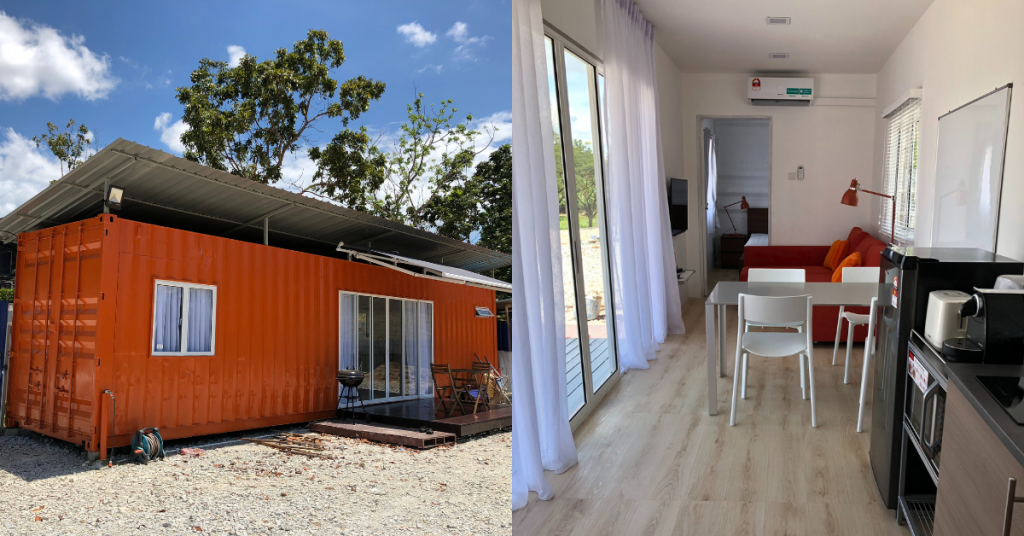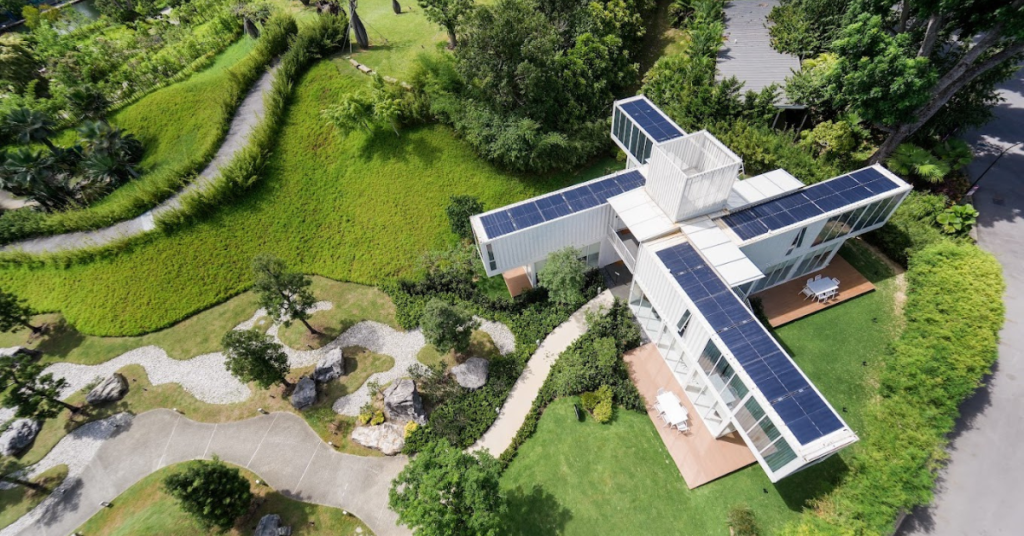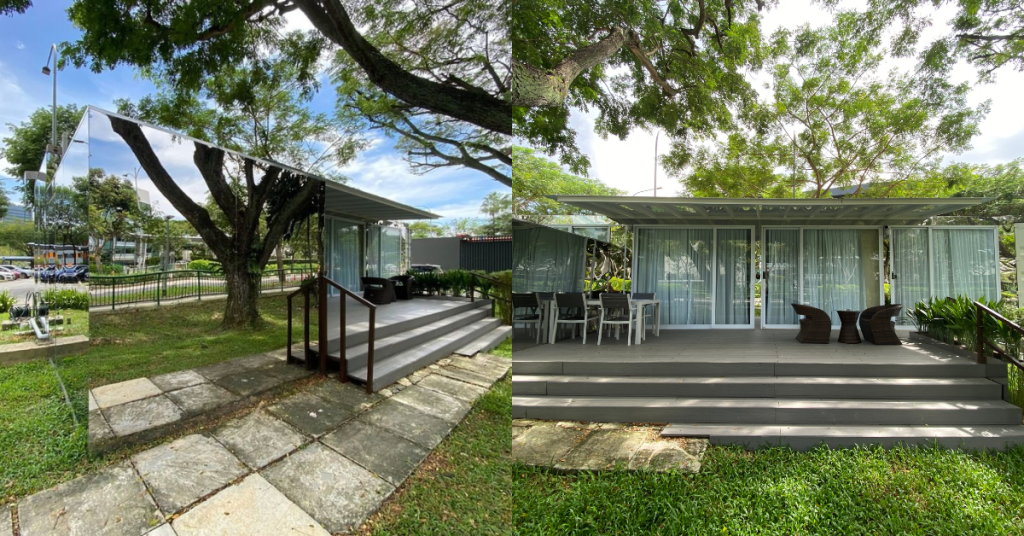Most people look at shipping containers and see a transportation medium for large objects. They belong on the back of ships or stacked tall and proud at ports.
But Seah Liang Chiang sees them as vacation spots, a place where you can go to get away from life’s hecticness.
Part of this inspiration comes from the then-popular Netflix’s Tiny House Nation TV series. “I wanted to find out how it was like to live in a tiny house,” Liang Chiang said. It also helped that he already had some land in Ledang Heights, Malaysia, that was facing a lake at the time.
However, he didn’t have the means to build a big house there. Then he thought, why not a small cabin?
So , he bought a shipping container and turned it into his home away from home.

“After I built it, I was so happy with the outcome that I decided to build pop-up hotels in Singapore using shipping containers,” he exclaimed. Thus, began the story of Tiny Pod.
Small spaces, big ambitions
Liang Chiang wasted no time in drafting a business proposal and sending it to the Pro-Enterprise Panel (PEP). It’s an agency under the Ministry of Trade and Industry Singapore that supports the growth of local businesses.
Intrigued by the concept, PEP accepted the idea under its First Mover Framework and with their assistance, he found the spot to kickstart his hotel dreams.
Sitting on two plots of land at JTC Launchpad @ One North is Tiny Pod’s first hotel. Like a small apartment, the place is fully equipped with everything you’d need—a full kitchen, dining area, two queen-sized beds, a bathroom, television, and wifi.

You could say it’s sheer luck or just timely business strategies, but either way, Singaporeans were thrilled with the concept. When its doors first opened in January 2020, their occupancy rate was close to 90%.
Then the pandemic landed and travel was limited. “We didn’t know whether it was going to be a success or not. In fact, when we had to close the hotel during Singapore’s Circuit Breaker for three months due to COVID, we thought that it was the end of this dream,” he recalled.
But when the Circuit Breaker was over, business picked up even more. Singaporeans were hungry to get out of the house and since overseas travel wasn’t allowed, they sought for novel staycations, a Tiny Pod specialty.
In that light, Liang Chiang began expanding the brand with bigger and bolder ambitions.
Going full steam ahead

The company currently has three ranges of hotels to fit different customer needs and budgets.
Those looking for a more luxurious stay could opt for its Garden Pod that’s located within the tranquil zen garden at the Gardens by the Bay. While it may seem like a facade, all four of its duplex suites are made from repurposed 40-footer shipping containers.
The space is powered by thin photovoltaic solar panels and features many windows to make it feel more spacious. A night here starts from S$550 and can accommodate up to a party of five.
Another assortment of Tiny Pod’s hotels are its mid-range stays. This includes the first shipping container hotel in One North and a newer space at Haw Par Villa.

The latter is located within the oldest theme parks in Singapore. The compound is enclosed with luscious forests, which sounds perfect for people wanting to escape the hustle and bustle of the city. The price for one night’s stay here begins at S$250.
Tiny Pod’s third range of hotels, yet to be launched, diversifies outside of the shipping container realm. In its place, the brand will be using decommissioned SMRT trains, converting them into co-living hotels. There will be a total of eight micro-rooms, each around 80 sq ft with an attached bathroom.
The idea came about when he first heard that the Land Transport Authority (LTA) was decommissioning older trains. So he approached them about two years ago. “LTA was very open to the idea of giving the decommissioned trains a new lease of life.”
“I used to outsource the building [and] renovation to third party contractors. But having learnt from the construction of our first three hotels, I’m now able to build the hotels myself,” he enthused. The hotel will be launched around Q4 this year.

Blazing new trails in hospitality
More than just aesthetics, though, Tiny Pod is actually about sustainability and innovating the hotel scene.
There are three main reasons why the company chose to use shipping containers. First is cost, as shipping containers are easily available and relatively cheap. Second is that they’re more eco-friendly as the brand merely repurposes existing shipping containers.
The third? Its mobility.
“It’s easy to move a shipping container from one spot to another. They’re meant to be transported easily,” Liang Chiang shared. Which is why Tiny Pod markets their hotels as “pop-ups”.

Since the start, his plan had always been to move these hotels to different parts of the island or the world every few years. “Unlike other building structures, we don’t need to demolish our hotels. We can merely move the entire hotel to a new location.”
Ideally, this would be in places where you can’t usually find a hotel so that guests can be plugged into different environments. As such, Tiny Pod’s ultimate goal is to create the world’s largest movable and sustainable co-living hotel.
To achieve this, they’re seeking Series A funding between S$3 million to S$5 million to build 200 co-living hotels in Singapore. His hope is to eventually own or operate 1,000 of them.
Featured Image Credit: Tiny Pod










